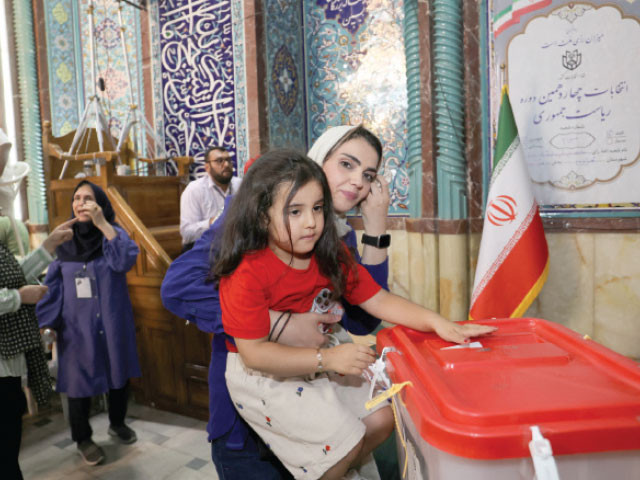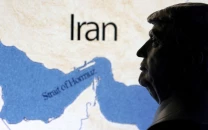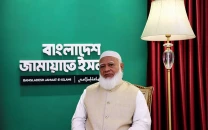Iran votes in election runoff

Iranians voted on Friday in a presidential election runoff between a reformist advocating improved ties with the West and an ultraconservative former nuclear negotiator.
The election, called early after the death of ultraconservative president Ebrahim Raisi in a helicopter crash, follows a first round marked by a historically low turnout last week.
The runoff between reformist Masoud Pezeshkian and ultraconservative Saeed Jalili comes amid heightened regional tensions over the Gaza war, Iran’s nuclear standoff with the West and widespread economic discontent exacerbated by Western sanctions.
Supreme leader Ayatollah Ali Khamenei, who has the final say in all state matters in Iran, cast his ballot when polls opened. “I heard that the enthusiasm and interest of the people is more than before, praise to God that it will be like this, and if it is like this, it will be gratifying,” he said.
State television showed voters queueing in Saveh in central Iran and Kerman in the south, but AFP correspondents said polling stations appeared less busy in Tehran. In last week’s first round, Pezeshkian, who was the only reformist permitted to stand, won the largest number of votes, around 42 percent, while Jalili came second with 39 percent, according to figures from Iran’s elections authority.
Only 40 percent of Iran’s 61 million eligible voters took part -- the lowest turnout in any presidential election since the Islamic Revolution of 1979. In past elections, authorities have extended polling hours to give voters the maximum time to turn out and the interior ministry announced that they would again be extended on Friday, until midnight (2030 GMT).
Khamenei called for a higher turnout in the runoff, emphasising the importance of the election. He said the first round turnout was lower than expected, but added that it was not an act “against the system”. The election was originally scheduled for 2025 but was brought forward by Raisi’s death in a helicopter crash in May.
Pezeshkian and Jalili have taken part in two televised debates during which they discussed the low turnout, as well as Iran’s economic woes, international relations and internet restrictions.
Pezeshkian vowed to “fully” oppose police patrols enforcing the mandatory headscarf for women, a high-profile issue since the death in police custody in 2022 of Mahsa Amini.
The 22-year-old Iranian Kurd had been detained for an alleged breach of the dress code and her death sparked months of nationwide unrest.
Following the unrest, women increasingly flouted the code but police have again stepped up checks in recent months.



















COMMENTS
Comments are moderated and generally will be posted if they are on-topic and not abusive.
For more information, please see our Comments FAQ